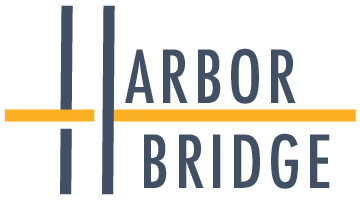Productive and Engaging Touchbases
One-to-one touchbases are the backbone of healthy working relationships between a manager and direct report. They create space to align on priorities, troubleshoot concerns and support engagement, trust, motivation, and commitment.
While most managers are aware of these significant benefits, there is often a struggle with conducting touchbases in a consistent and effective manner. The two main roadblocks that get in the way are scheduling and knowing how to facilitate the conversation.
With simple and impactful strategies, leaders can overcome these obstacles and turn touchbases into a powerful tool for productivity and connection.
Systemize Your Touchbases
Create a set schedule: When something is on the calendar the odds of it getting completed increase exponentially. A recurring weekly meeting is an accountability device surrounding the touchbase. We have seen significant improvements in consistency when leaders make this one simple change. Note: Choose a time that will have the least surprise conflicts and will also support everyone’s mental preparation. For instance, avoid scheduling a touchbase immediately following an all-hands meeting that has a history of running over or for first thing on Monday mornings.
Create an agenda template: A touchbase template of topics to be discussed automates your preparation process which cuts down on time. As an additional bonus, it allows your direct report to come to the touchbase with clear expectations for the conversation, increasing the quality of the discussion and their confidence and peace of mind. For a sample touchbase agenda, reach out and we would be happy to share ours!
Facilitate for Connection and Clear Actionables
Build Rapport: The weekly touchbase is more than just a dissemination of information. Passing along updates and assigning deliverables can be done in an email or through updates to a project board. Touchbases have a bigger purpose; they are time devoted to your partnership with your direct report. While it can be tempting to get “right down to business” during your touchbase, be sure to invest time during the agenda to talk about life outside of work so you can connect as full people, not just as workers. This becomes extra important when managing remote teams as the water cooler talks are no longer possible and virtual touchbases become the main opportunity for interpersonal conversation and connection.
Review key goals and projects: What we talk about becomes important. It is easy to get caught up in the day-to-day tasks and lose sight of the bigger objectives, commitments and long range projects. By including these in your agenda, you keep the high-level priorities alive and ensure that all tasks and efforts are directed towards the greater purpose and vision.
Solicit feedback and ask open-ended questions: In order to foster understanding, collaboration and alignment you need insight into your direct report’s view – what are their perceptions, challenges and suggestions. This doesn’t always happen organically - you must ask questions and dig deeper beneath surface level responses. Begin with broad open-ended questions such as “what’s working well for you?” or “what additional information or support do you need to be successful?” This gives your direct report the opportunity to share what they feel is important and allows you to dig deeper with follow up questions.
Align on next steps and tangible commitments: The last vital piece for an effective touchbase is to turn the conversation into action. Assign deliverables, set deadlines and add follow ups to the next week’s agenda in order to support accountability. This step often gets missed which takes away the momentum from the touchbase and minimizes its impact. Remember some of these deliverables may also fall on you and following through on them will further build your direct report’s confidence in your reliability as their leader.
Touchbases can be perceived as unproductive when not effectively utilized or if they are routinely ignored. You can change this by applying these best practices to transform your touchbases into a tool to build personal connection, reinforce direction and enhance engagement.
In our work as human resources consultants, we often meet leaders who understand the importance of touchbases but struggle with either finding the time or knowing how to conduct them effectively. We help them create a system to simplify the process and train leaders on facilitation best practices by addressing their personal challenges and the nuances of their position and department. We work closely with our clients to develop solutions that are not only impactful but also immediately implementable.
If you are looking for support in this area, schedule a free Discovery Call and let’s talk!
